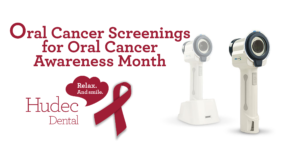As we all know, the mouth and the body aren’t separate. If you have conditions in the body, especially systemic problems like diabetes, or hypertension, they affect your dental health as well. Blood pressure normally rises and falls throughout the day, but it can cause health problems if it stays high for a prolonged period of time. When a person has consistently high blood pressure readings, a physician will diagnose hypertension and make recommendations to control it. If a person is in the pre-hypertension category, major lifestyle changes should be considered to prevent moving into the hypertension category. Patients see their dentists more often than their doctors, so taking blood pressure is a great screening tool. You only have one heart and if it’s constantly under stress.
Reason No. 1
Dental visits provide the perfect opportunity to screen for hypertension, dental patients who are not being treated by their primary care physician will typically view themselves as being “healthy.” These same patients typically see their dentist two times a year for routine preventive care yet may only visit their physician every few years, if at all.
We are put in a unique position to assess blood pressure and increase our patients’ awareness about the risks associated with untreated hypertension. When we inform a patient that they have undetected, uncontrolled hypertension, the dental visit then serves as an open door for the person to take charge of their overall health.
Reason No. 2
Detecting hypertension in early stages can limit damage it causes to the body. High blood pressure is called the “silent killer” because the condition will often lack noticeable warning signs. Most patients will not feel like they have high blood pressure until it is significantly high and at dangerous levels.
When it is finally detected, consistent elevated blood pressure may have already caused serious damage to the heart, blood vessels, kidneys, and eyes to name a few. When hypertension is discovered early at a routine dental appointment, patients can be referred to their physician to have it treated and controlled before serious damage to the body happens.
Reason No. 3
Routine screenings can shine a spotlight on the negative effects associated with white-coat syndrome For certain patients, the stress and anxiety associated with their dental visit is enough to increase their blood pressure, resulting in higher numbers than if it had been assessed in a more relaxed environment. This common medical condition-called white-coat hypertension. It can be concluded that white-coat hypertension is a risk factor for heart attack, heart failure, and stroke. High blood pressure associated with white-coat syndrome has been linked to target organ damage through its effect on the left ventricle. White-coat hypertension can progress to sustained hypertension over time. Alerting patients about the presence of white-coat hypertension can act as a tool in helping them take charge of their health.
Reason No. 4
In the past, it was not uncommon for women to avoid going to the dentist when they were pregnant for fear that undergoing dental procedures was unsafe. In recent years there is an improved public awareness about the importance of preventive dental care during pregnancy. Given this information, dentist are much more likely to have multiple pregnant patients in their chairs.
Performing routine blood pressure screenings in the dental setting can alert pregnant patients of the presence of preeclampsia, a fairly common, yet serious condition that occurs during pregnancy and in the postpartum period. Preeclampsia can progress rapidly.
Preeclampsia generally occurs during the second or third trimesters.
Reason No. 5
Diabetes is the other “silent killer” often linked to high blood pressure. Screening for hypertension during routine preventive dental appointments is imperative because elevated blood pressure is often indicative of another serious medical condition that commonly occurs without symptoms and remains undiagnosed during its earliest stages-type II diabetes. High blood pressure is reported in over 66% of people with type 2 diabetes. Detecting diabetes early can mean avoiding much more dangerous symptoms later. The dentist who detects consistent blood pressure readings of higher than 135/80 should refer the patient to their physician to be evaluated for both hypertension and diabetes.
Reason No. 6
Blood pressure readings are required in order to choose the appropriate local anesthetic for dental injections. For patients with a blood pressure reading in excess of 200 mm Hg systolic or 115 mm Hg diastolic, the recommendation is that local anesthetics with epinephrine should always be avoided.
Reason No. 7
An elevated blood pressure reading may signal the need that stress reduction protocols be enacted. For many patients, a simple trip to their dental office can initiate a fight or flight response which is often characterized by an increase in blood pressure and heart rate. Elevated blood pressure readings can signal the dentist that stress reduction tactics should be used to ease the patient.
Dentist should specifically incorporate relaxation and distraction methods into the treatment plan of an anxious hypertensive patient to minimize patient discomfort and reduce the overall risk to the patient.
Reason No. 8
It’s an easy diagnostic tool for us to use as we are health care professionals. We understand the link between hypertension, diabetes, and periodontal disease. Chronic inflammation due to periodontal disease has been linked to hypertension in some patients.
If you are still curious about how your blood pressure links with your smile, be sure to ask your dentist at your next visit. Don’t have a visit scheduled? Give us a call at 216-661-8888 today!






